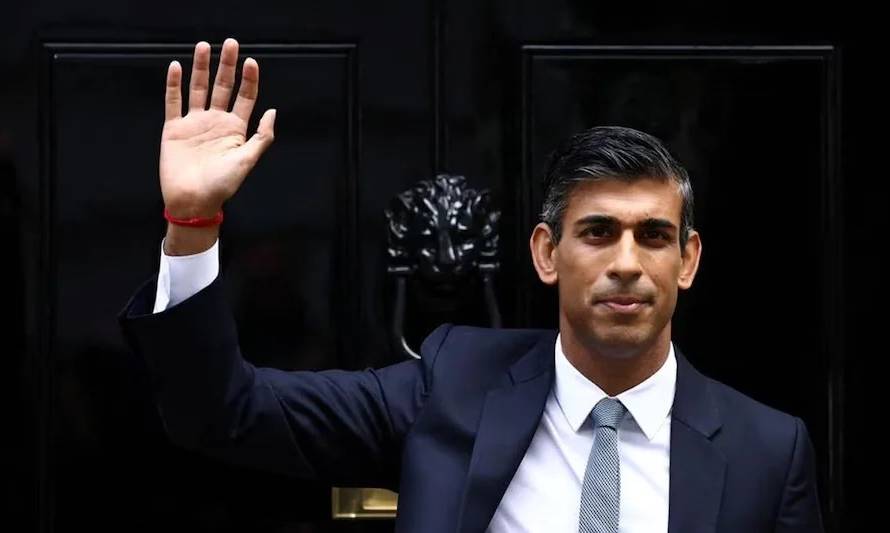By P. K. Balachandran
On the face of it, opting for “strategic autonomy” in a multi-polar world makes sense. It releases a country from the shackles of pre-existing alliances and enables it to take its decisions independently. It enables a country to navigate among antagonistic international groups and strike the best bilateral bargains. In the realm of strategic autonomy, there are neither permanent enemies nor permanent friends.
Many developing countries which have tasted some economic success have opted for strategic autonomy to build on their new-found strengths. India and Turkiye appear to be successful in this venture to an extent. But strategic autonomy also brings in its train a narrowness of vision and ad-hocism that may lead to short-sighted policies. Such ad hoc, short-sighted policies, may block major opportunities for national growth, lasting peace and collective international development.
Pursuit of short-term goals by more and more countries could destabilize the existing world order without providing a substitute order. But some kind of order or stability in relations is necessary for the conduct of international relations, particularly trade and commerce.
Link to Domestic Authoritarianism
Scholars have seen an organic link between the quest for strategic autonomy and domestic authoritarianism. And domestic authoritarianism is based on an emotionally binding ideology. In Turkiye it is resurgent pan-Islamism and in India it is Hindutva. These popular ideologies give Recep Tayyip Erdogan and Narendra Modi the backing needed to exercise strategic autonomy in the international sphere. In fact, strategic autonomy in international relations is part of the nationalistic package these leaders have sold to the masses. And the masses exult in the sense of power they get.
Turkiye, India External Relations
The external relations of Turkiye and India exemplify both the positive and negative consequences of pursuing “strategic autonomy.” Though Turkiye is still part of NATO, and India is part of the US-led QUAD, the two have acted independently of these groupings to score some gains. Despite membership of NATO and threats of US sanctions, Turkiye bought the S-400 missile system from Russia. And despite having a “strategic partnership” with the US, India too bought S-400s.
Turkiye voted in the UN to condemn the invasion of Ukraine by Russia, but did not agree to join NATO and EU sanctions against Russia because it wants to be a mediator in the Russia-Ukraine dispute. India too has not gone beyond saying that war is no way to solve the Ukraine problem. When Westerners questioned India’s continued economic relations with Russia despite the Ukraine invasion, Foreign Minister S.Jaishankar retorted that the West is thinking only of its problems and not the economic problems of the Global South.
Turkiye joined the US in sponsoring a resolution against China in the UNHRC on the Xinjiang Uyghur Muslims’ issue despite its close ties with Beijing. And India abstained from the vote on China, despite having a long-standing border row with it. The voting pattern revealed that Turkiye was driven by its entrenched policy of supporting hard-pressed Muslims across the world, and that India did not want to further exacerbate its relations with China. Both are examples of the exercise of strategic autonomy.
Turkiye-India Relations
But the policy of strategic autonomy has its downside too as an examination of India-Turkiye relations would show. India-Turkiye relations have vast potential because both are industrializing nations looking out for economic opportunities. Bilateral trade was US$ 10.70 billion in 2021-22. Indian companies have invested US$ 125 million in Turkiye and Turkish investments in India stand at USD 223 million.
But still, Indo-Turkiye relations are far from cordial. Clashes have occurred with both pursuing strategic autonomy, marked by narrow political or ideological interests rather than their larger, long-term interest in befriending each other. Both countries could have gained billions of dollars if only they had not raised narrow nationalistic issues like Kashmir or Cyprus in international fora.
At the recent UNGA session, Erdogan again criticized India for its Kashmir policy. Stung by this, Indian Foreign Minister Jaishankar met his Cypriot counterpart, Ioannis Kasoulides to convey a message to Erdogan that if he supported Pakistan on Kashmir, India would support the Greek Cypriots in Cyprus against Turkiye’s occupation of Northern Cyprus. In the on-going dispute between Armenia and Azerbaijan over the disputed Nagorno-Karabakh region, India supported Christian Armenia while Turkiye backed Muslim Azerbaijan. These narrowly nationalistic Indian and Turkiye moves nullified the hopes generated by the Modi-Erdogan meeting on the sidelines of the recent Shanghai Cooperation Organization (SCO) summit in Samarkand in October.
Domestic Roots
The roots of the problem lie in domestic political needs of the Erdogan and Modi regimes. Erdogan’s Justice and Development Party (AKP) is radically Islamic, aiming to promote the world Islamic community or Umma. Turkiye also wants to take over the leadership of the Islamic world from Saudi Arabia and the UAE. Against this background, India alleges that Turkiye is a hub of anti-India activities. It is alleged that a Turkish NGO, Insan Hak ve Hurriyetleri ve Insani Yardim Vakfi (IHH), has ties with the Popular Front of India (PFI), an Islamic organization accused of promoting radical Islam and terrorism. Turkiye allegedly encourages radical Kashmiri youth to shift to Istanbul and Ankara.
On the other hand, Narendra Modi’s Bharatiya Janata Party (BJP) stands for Hindu power over Muslim-majority Kashmir and generally over the Muslim minority across India. This triggers anger in Islamic Turkiye.
Need for Broader Perspective
Indian commentators, Anuttama Banerji and Niranjan Marjani, argue that Turkiye has much more to gain from good relations with economically growing India than from upholding economically backward Pakistan’s case on Kashmir. India too would gain from good relations with Turkiye, an industrializing country at the crossroads of Asia and Europe. India and Turkiye could sign a free trade agreement or a Comprehensive Economic Partnership Agreement (CEPA) that will be of immense benefit to both.
But narrow interests have blocked these possibilities. Commentators recommend that India should maintain a neutral stance on Northern Cyprus and Nagorno-Karabakh issues and Turkiye should abandon the Kashmir issue. However, these are pipedreams in an intensely competitive international politics, where every up and coming country wants to exercise strategic autonomy to pursue narrow and short-term national interests.
Ties with Rest of South Asia
Turkiye is cultivating all countries in South Asia. But some aspects of these ties could jeopardize its relations with India. Turkish arms transfers to Pakistan totaled US$ 112 million between 2016 and 2019. Turkiye is Pakistan’s fourth largest source of arms, surpassing the US. These numbers will grow as Turkiye fulfills recent orders from Pakistan exceeding US$ 3 billion, including the purchase of four MILGEM Ada-class corvettes and 30 T-129 Atak helicopters.
But increased military deals between Turkiye and Pakistan could adversely affect Ankara’s relations with New Delhi that is locked in conflict with Islamabad perpetually.
Published material reveals that Bangladesh is the fourth-largest weapons buyer from Turkiye. In 2013, Turkiye supplied Otokar Cobra light armored vehicles to the Bangladeshi Army. The Turkish firm, Delta Defense, was awarded a US$ 1 billion contract for 680 light armored vehicles in August 2017. Turkiye secured a contract in March 2019 to supply a regiment of medium-range guided multiple rocket launchers to the Bangladeshi Army.
In the first four months of 2021, Bangladesh imported US$ 60 million worth of arms from Turkiye, out of Turkiye’s total of US$ 1 billion in defense sales. The potential is huge as Bangladesh had allocated US$ 4.45 billion to its military budget in the fiscal year 2021-22. A Joint Production and Technology Transfer initiative is also on the cards.
However, Bangladesh’s massive arms purchases from Turkiye could incur India’s displeasure as India considers Bangladesh to be within its sphere of influence and has offered funds to buy Indian hardware. But Dhaka too wants strategic autonomy, sometimes even at the cost of good neighborly relations with India, with which it has multifarious ties far more critical to it than its ties with Turkiye.
Ties with Afghanistan
Turkiye has a role in Afghanistan, with the US wanting it to be an intermediary vis-à-vis the Taliban government. US Secretary of State Anthony Blinken calls Turkiye “an important NATO ally” and “invaluable partner in the region”.
However, Turkiye might use its kinship with the Turkic people of Afghanistan and such as the Uzbeks, Turkmens, and others, to serve its narrow interest of building a base for itself among these Turkic communities. But that would alienate the non-Turkic Pashtun-dominated Taliban.
Ties with Nepal, Sri Lanka and Maldives
Turkiye has given humanitarian assistance to Nepal during floods and earthquakes. It is keen on promoting tourism in Sri Lanka by increasing the number of flights to Sri Lanka from 11 to 14 per week. But ties with the Maldives could be controversial. While Turkish firms’ interest in investing in the Maldivian tourism sector would be of mutual benefit, the plan to promote “religious cooperation, including the establishment of an Islamic Center in the Maldives” could raise a storm in New Delhi.
One of the reasons why India was keen on ousting President Abdulla Yameen was that he was pandering to Islamists. If Turkiye and the Maldives want to cultivate India and enjoy the fruits of cooperation with it, they would be well-advised not to pursue the narrow interest of promoting Islamism.
Therefore, a policy based on narrow and momentary self-interest, designated as “strategic autonomy”, may have its uses, but it may also be counterproductive from the point of view of Turkiye’s potential capability to exploit long-term opportunities in South Asia.
P.K. Balachandran is a freelance journalist based in Colombo writing on South Asian affairs for various news websites and dailies for a number of years. He has reported from Colombo and Chennai for Hindustan Times, New Indian Express and Economist. He has a weekly column in Daily Mirror and Ceylon Today in Sri Lanka.
Factum is an Asia Pacific-focused think tank on International Relations, Tech Cooperation and Strategic Communications accessible via www.factum.lk


